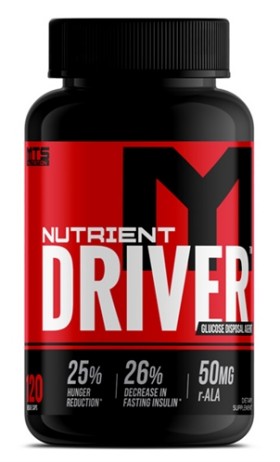
Carbs Are Not the Enemy! Complete Carbohydrate Guide
Spend any time scrolling through news headlines, fitness blogs, or your favorite celebrity twitter-grams and you’ll quickly realize that carbs are bad news.
The humble carbohydrate, the tasty morsel that it is, is on the run thanks to a swell of big-name personalities eschewing the macronutrient under the guise it’s “unnecessary” or “makes them fat”. This has led droves of people to ditch carbohydrates and embrace the low carb/keto lifestyle under the guise it’s the “true path” to health and wellness.
Related - Breaking a Weight Loss Plateau Without Lowering Calories
Well, we’re here to tell you carbohydrates are not the enemy - if fact, they can be your greatest ally when it comes to maximizing performance and maintaining your sanity while dieting. And even before you ask, yes, you can still eat carbohydrates and lose weight.
Let’s take a realistic look at this much-beleaguered macronutrient and see how it enhances health, wellness, and performance.
Complete Carbohydrate Guide
Carb Basics
As you know, carbohydrates are one of the three main macronutrients, along with fat and protein. Carbohydrates are found almost exclusively in plants and yield four calories per gram.
Following consumption, all carbs (simple and complex) basically end up the same, like glucose. After passing through the liver, carbohydrates are converted to glucose and delivered to the bloodstream for immediate use or converted to glycogen and stored for later use.
Now, let’s take a deeper look at the difference between blood glucose and glycogen.
Blood Glucose vs Glycogen
The words glucose and glycogen are frequently used interchangeably when discussing carbohydrates and their role in athletic performance, but the two are very different. Blood glucose (sugar) is sugar that doesn’t remain in the liver and is transported into the bloodstream, where it’s used as an energy source by all the cells of your body.
King among these sugar-powered cells are those of the nervous system, including the brain and nerves that regulate skeletal muscle function. While your body can synthesize the required glucose it needs to power your brain from protein and fats (a la ketogenic diets), it’s much more efficient to use glucose.
Turning our attention to glycogen, it is the storage form of glucose in the body. When blood glucose is absorbed by muscle cells, it’s used to fuel muscular activity and repair. But, the vast majority of glucose that enters the muscle is stored as glycogen, which is a much more efficient, easily accessible form of energy, particularly during intense physical exercise.
Using glycogen, allows your body to perform at much higher levels, but the “catch” is that there’s a limited amount of glycogen your muscles can store. When your glycogen stores become depleted, your ability to sustain a high level of performance falls off dramatically. Athletes usually describe this feeling as “hitting the wall.”
To sum things up, during exercise, glycogen serves as the primary energy substrate. Following training, your glycogen stores are depleted, and your body uses blood glucose to replenish those glycogen stores to allow you to subsequently perform at a high level. If, however, your muscle glycogen reserves are topped off, and you still have excess blood glucose surging, your body stores those carbs as adipose tissue, a.k.a. body fat. [1]
Carbs = Fuel
Sports science has pretty conclusively shown that glycogen is essential to performance. When your glycogen stores are gone, so is your performance. This is due to the fact that glycogen is vital to ATP resynthesis during intense physical activity, so it stands to reason that the more glycogen you have stored in your muscles, the longer you’ll be able to sustain athletic performance. [2][3]
Here’s reason #1 why it makes absolutely zero sense for high-level athletes to ditch carbohydrates. Essentially, if you’re restricting carbohydrate intake you’re cutting your legs out from under you before the competition even starts.
Carbohydrates are to your body what jet fuel is to an F-16, it’s higher performance fuel for a higher performance machine. Eating the right amount of carbohydrates, based on your training needs, and you’ll top off your glycogen stores, setting the stage for maximum performance and little fat storage.
And here’s where people get into trouble...eating more carbs than they need. You see, every individual has a different carbohydrate need based on their training and lifestyle. An ultra-marathoner’s has a very different carb requirement than the bro lifting a few times per week or the office worker who does nothing but sit behind a computer all day long.
Performance Benefits of Carbs
- Better performance
- Greater endurance
- Enhanced intra-set recovery
- Faster recovery between workouts
- Prevents muscle breakdown (catabolism)
- Increases training capacity (volume of work you can handle)
How Many Carbs do I Need?
Unfortunately, there’s not a set in stone answer. It’s more of a “moving” target based on your training schedule and lifestyle.
If you are training frequently and have a job requiring lots of movement (i.e. waitress, construction worker, etc.) your carb needs will be greater than someone working a desk job. To further complicate the issue, researchers haven’t invested nearly as much time into determining optimal carb intake like they have for protein, but, don’t worry, we’ve compiled a list of “recommendations” to help you determine how many carbs you need on a daily basis based on your training style and job requirements.
Low training volume & sedentary job. Your training is low rep and low volume (i.e. powerlifting / strength-based training) and you work a sedentary job (desk job).
Carb intake: 0-1g/lb bodyweight.Moderate-high training volume & moderately active job. Your training is hypertrophy (bodybuilder) training, moderately active job (waitress, personal trainer, etc.), walking or cycling commuter. Carb intake: 1-2g/lb bodyweight.
High volume training & physically demanding job. 2-3g/lb: You’re training twice per day or your training sessions last for over two hours each day. Your job is extremely demanding (group fitness instructor, construction worker, furniture mover, or you do a lot of extra walking or cycling outside of commuting. Carb intake: 2-3g/lb bodyweight.
Endurance training. Long bouts of strenuous exercise 2-3 times per day. Most of you reading this aren’t at this training level and will not need a carb intake this high. Carb intake: 3+g/lb bodyweight.
Carb Timing
The issue of carb timing is a hotly contested one, but in reality, precisely timing your carb intake isn’t necessary unless you’re a competitive endurance athlete or training multiple times in the same day. If you’re just training one time each day, the most important thing is to focus on the total number of carbs you need each day and make sure you’re getting them all in. This will help replenish glycogen stores so that you’re ready and raring to go come to the next training session.
That being said, there are some minor perks to timing your carbs, especially if you’re looking for an edge.
Pre-Workout. If you’re headed for a high volume day of resistance training, eating carbs pre-workout can increase your performance and give you some pretty sick pumps too.
Intra-Workout. Intra-workout carbs are really only needed for physical activity lasting over one hour (swimming, biking, running, etc.). Consuming some type of quick-digesting carb source can prevent muscle breakdown and sustain performance.
Note: There is a limit to the number of carbs you can use while training. Studies show that the maximum carbohydrate oxidation rate (the rate at which your body processes carbohydrates) is 1-1.1 g/min.[4,5] What this means is that endurance athletes should consume 0.5-1g of carbohydrate per minute (or 30-60g of carbs per hour) while training. Taking in more than this can lead to GI distress and thus, reduced performance.
Post-Workout. Research indicates that consuming some carbohydrates in the 4-6 hours following intense exercise and enhance glycogen replenishment and reduce soreness. This becomes more important if you’re training multiple times per day.

The Ultimate Carb Wingman
So, you’re ready to reintroduce carbs into your diet, but still a bit wary that you’ll spillover and accumulate a bunch of unwanted body fat during your carb up. Fortunately for you, MTS Nutrition has developed the ultimate carb wingman to accompany any and all carb-heavy meals you tackle in Nutrient Driver.
MTS Nutrient Driver is a superior glucose disposal and nutrient partitioning supplement that shuttles nutrients into your muscles, thereby preventing fat storage and unwanted fluctuations in blood sugar. It’s ideal with a high-carb pre or post-workout meal, or for those epic cheat meals, you have on the weekend. Nutrient Driver funnels all those tasty carbs directly into your muscles where they get to work building muscle and powering performance, and not towards expanding your waistline.
Nutrient Driver is here to make carbs great again, one meal at a time.
References
2) Knuiman P, Hopman MTE, Mensink M. Glycogen availability and skeletal muscle adaptations with endurance and resistance exercise. Nutr Metab (Lond). 2015;12(1):59. doi:10.1186/s12986-015-0055-9.
3) Ivy JL. Muscle glycogen synthesis before and after exercise. Sports Med. 1991;11(1):6-19.
4) Jeukendrup A. Carbohydrate Intake during Exercise and Performance. Vol 20.; 2004. doi:10.1016/j.nut.2004.04.017.
5) Jeukendrup AE, Jentjens R. Oxidation of Carbohydrate Feedings During Prolonged Exercise. Sport Med. 2000;29(6):407-424. doi:10.2165/00007256-200029060-00004.

Comments
Leave a comment